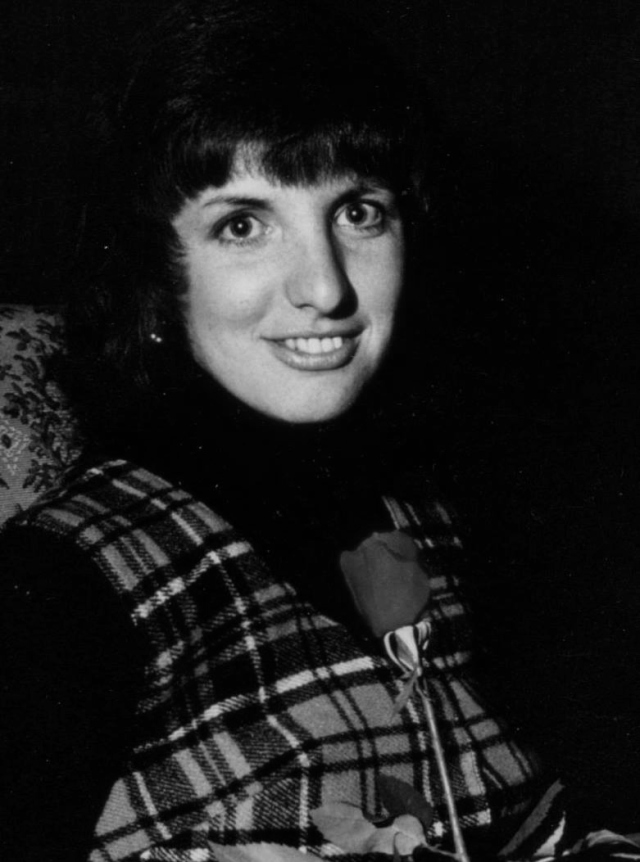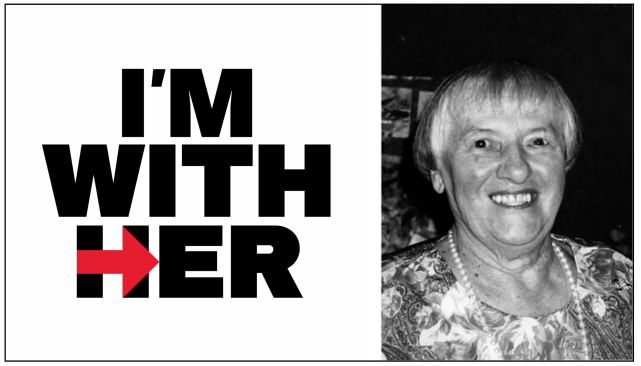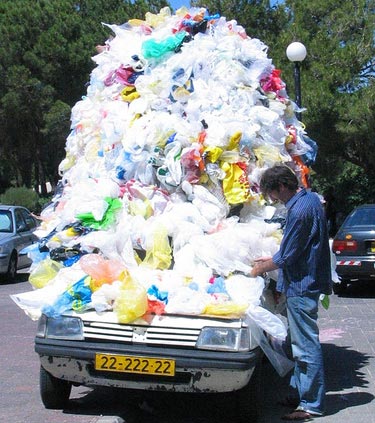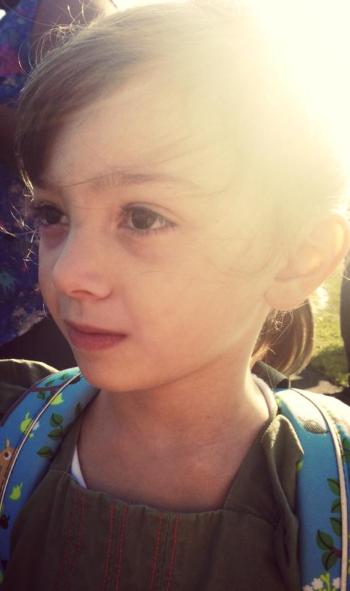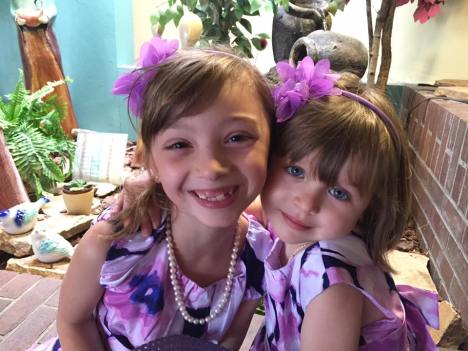
Photo by Craig Lovell/Corbis
My husband and I have a thing for penguins. We freaking love them. We love everything about them, from their goofy walk, to their fluffy chicks, to the fact that their poop is pink.
So, when we moved to Argentina in 2002 as part of my grad school program, our biggest travel goal was to visit one of the nesting colonies of Magellanic penguins along its eastern and southern coasts.

I mean, come on. Look at these guys.
We researched all our travel options until we found one that seemed perfect – a three-week bus tour that would take us from Buenos Aires to Ushuaia, the southernmost city in the world.
The itinerary was incredible – we would see the Patagonian Desert, the lakes and mountains of Bariloche, Perito Moreno and the surrounding glaciers, and a forest of petrified wood. We would hop in and out of Chile along the way, and cross the Straits of Magellan before reaching Ushuaia. As we traveled back north, we’d stop in Puerto Madryn, to visit Punta Tumbo, one of the world’s largest Magellanic penguin rookeries. It was a dream come true.
But the best laid plans of mice and men do often go awry, and so it was with us and the penguins.
The first sign that our trip might not be the dream we’d hoped it would be came before it even started.
We were at the bus station, waiting at the terminal clearly indicated on our tickets, bags packed and ready to go. The bus never came. Worse, no one working at the bus station knew anything about it ever having been scheduled to come.
But we were 23 and hopeful, so we waited. We waited just long enough to catch the driver from our travel agency frantically searching for us. We had, apparently, gone to the wrong place. He rushed us into his car and drove wildly along a freeway until he pulled up behind a tour bus idling in the shoulder of the road. With traffic speeding past us, he hauled us and our luggage out of the car and onto the bus…
Where we were greeted by 28 pairs of angry, elderly eyes.
Our travel agent had failed to tell us in her rapturous descriptions of our trip that we would be making up the 15th couple of a tour booked by a grandparents’ club from the Buenos Aires provinces – and that the tour was embarking from their town, well outside of the city.
If you ever want to have the full “awkward American” experience, go to any foreign country and walk onto a bus full of elderly people who have been stopped on the side of a road waiting for you. It’s something you’ll never forget.
I would say that the second sign that fate was working against us was the first time our bus broke down, adding an extended visit to a gas station on the edges of the Patagonian Desert to our tour.
But that break down was nothing in comparison what happened some six hours later when the engine caught fire. It was the middle of the night, and we were evacuated to fields of scrub where my husband and I laid bets on who would be the first person to be eaten, Fargo-style.
The third sign we were doomed was when, after being rescued by a replacement bus, we learned that it was haunted. My husband and I called our ghost the Phantom Pooper because it enjoyed regularly clogging the bus toilet – which is something of an inconvenience when you’re traveling for 20-hour stretches in an almost unpopulated desert.
But we were young, and we laughed it all off.
Until the day we learned about the fish restaurant that had been featured on Channel 13.
It came up in a halting conversation with one of the grandmothers. There was this famous fish restaurant in Rawson, just south of Puerto Madryn, she told us, and we would be skipping our stop in Puerto Madryn so we could have lunch there.
Assuming we’d encountered a language barrier, we consulted our tour guide Oswaldo. The penguin trip had been advertised on the brochure – there was no way it could have been canceled and replaced by lunch at a seafood restaurant.
But it had been. The president of the grandparent’s club had seen a news story about this restaurant and as a group they decided that eating there would be more enjoyable than a visit to a major national attraction where you could see penguins and baby seals and maybe even whales.
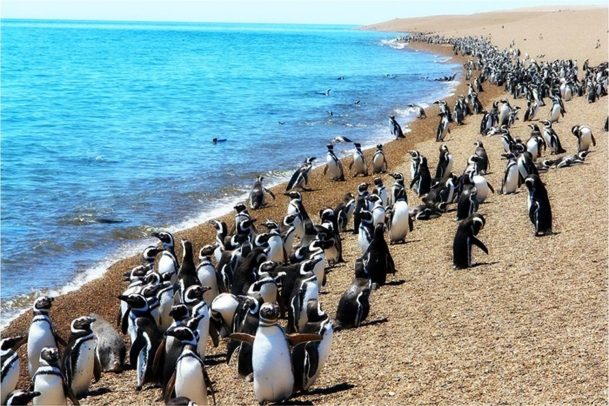
This, or lunch at a seafood restaurant. You pick.
My husband and I were crushed. Oswaldo tried to explain it away – there would hardly be any penguins there that time of year, anyway, he said, and this restaurant really was supposed to be very good. Besides, we could take a trip to see another rookery in Ushuaia.
So we bided our time, enjoying and appreciating the stunning, diverse beauty of southern Argentina.
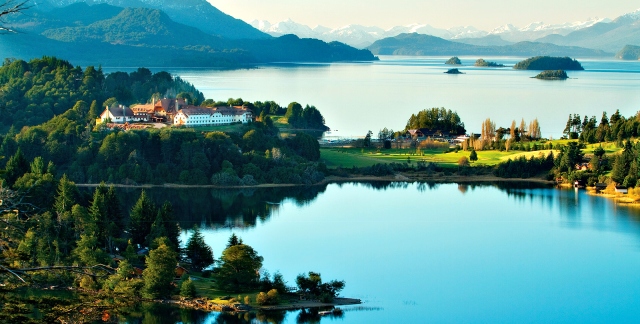
It is pretty incredible. You should go there. But not with a tour guide named Oswaldo.
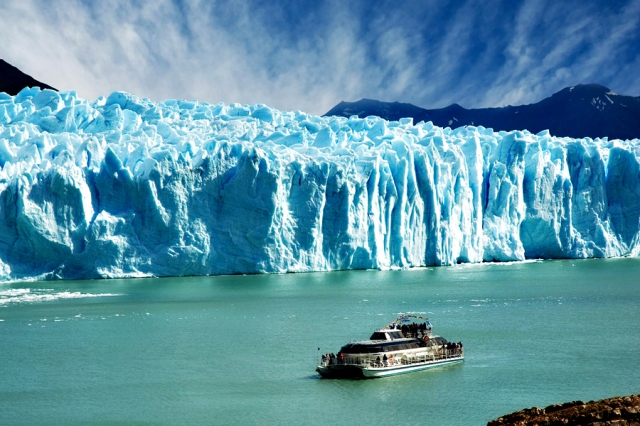
Note: These are not my pictures. I can’t find ours. Just like we couldn’t find the penguins.
But when we finally reached Ushuaia, it was all about the penguins.
We arranged the excursion ourselves – a guided boat tour that would sail us around an island inhabited only by penguins.
When we arrived at the dock, we were told that the boat needed repairs. Twenty minutes, they said, and we would be on our way. We waited. And we waited. At four o’clock, the worst was confirmed – the boat was kaput; there would be no tour.
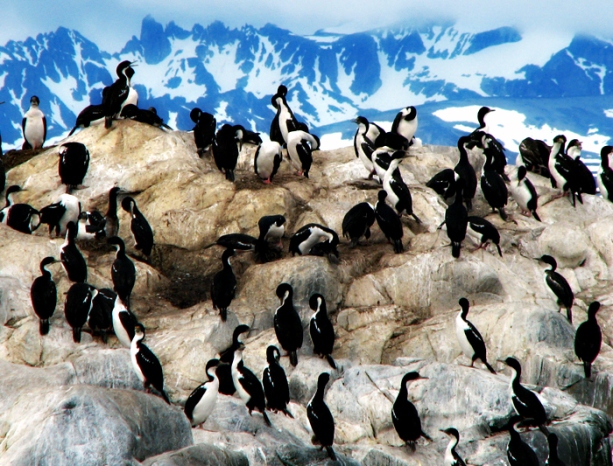
Gentoo Penguins of Ushuaia. The ones we didn’t see.
But, Oswaldo assured us after we returned to our hotel, all was not lost. There was one more stop along the way where we could take an excursion to the natural reserve at Cabo Dos Bahias, where we could see all the penguins a person could ever hope to see. He would take care of everything, this time, so there was nothing to worry about.
I think you can see where this is going.
When we reached the town where our last penguin hopes resided, we nagged the hell out of poor Oswaldo. We wanted to see some damn penguins, but it was more than that. It was us against Argentina and we were determined to prevail.
He purchased our tickets for us and said he would order us a cab from a company we could trust. He promised to meet us in the lobby the next morning, to personally see us off. Everything would be taken care of. There was no way this trip would fall through.
It did. Oswaldo forgot to call the taxi company. He had also forgotten to wake up – until it was just late enough for us to miss the only tour on the only day we would be in a town close enough to visit the Cabo dos Bahia reserve.
It was over. It had been us against Argentina, and Argentina won.
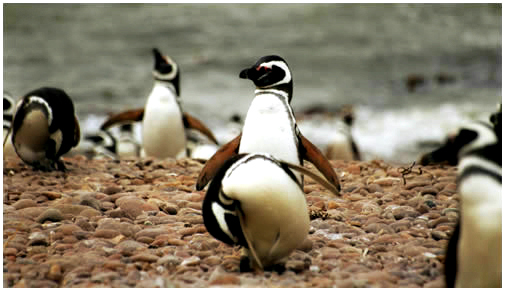
Cabo Dos Bahias. I should be in this picture.
Later, toward the end of our trip, we visited a small museum of natural history. In this museum, there was an exhibit of penguins. Dead, taxidermied penguins. And as we observed it, one of the grandmothers grasped my arm and exclaimed,
“Look! You finally get to see your penguins after all!”
